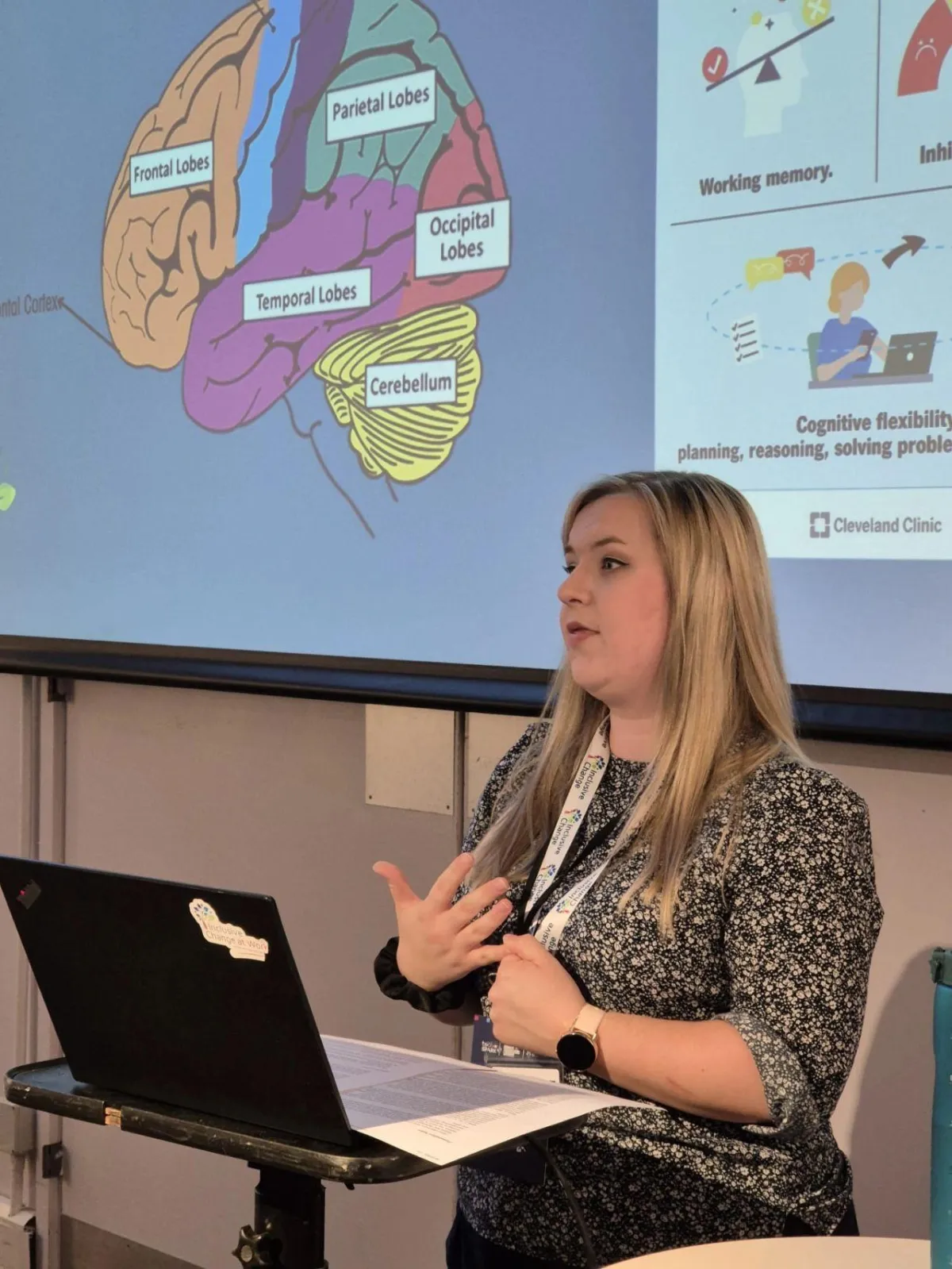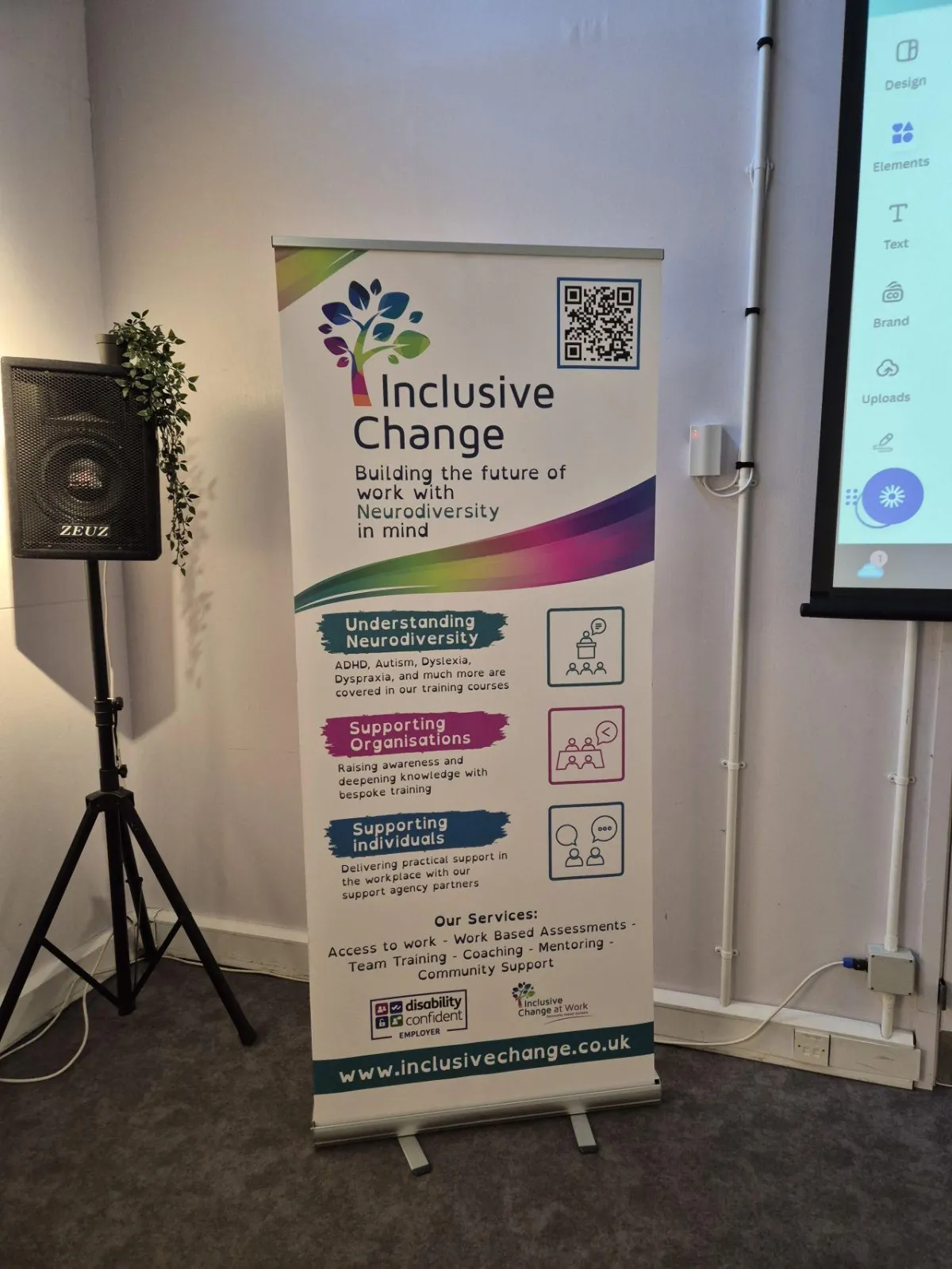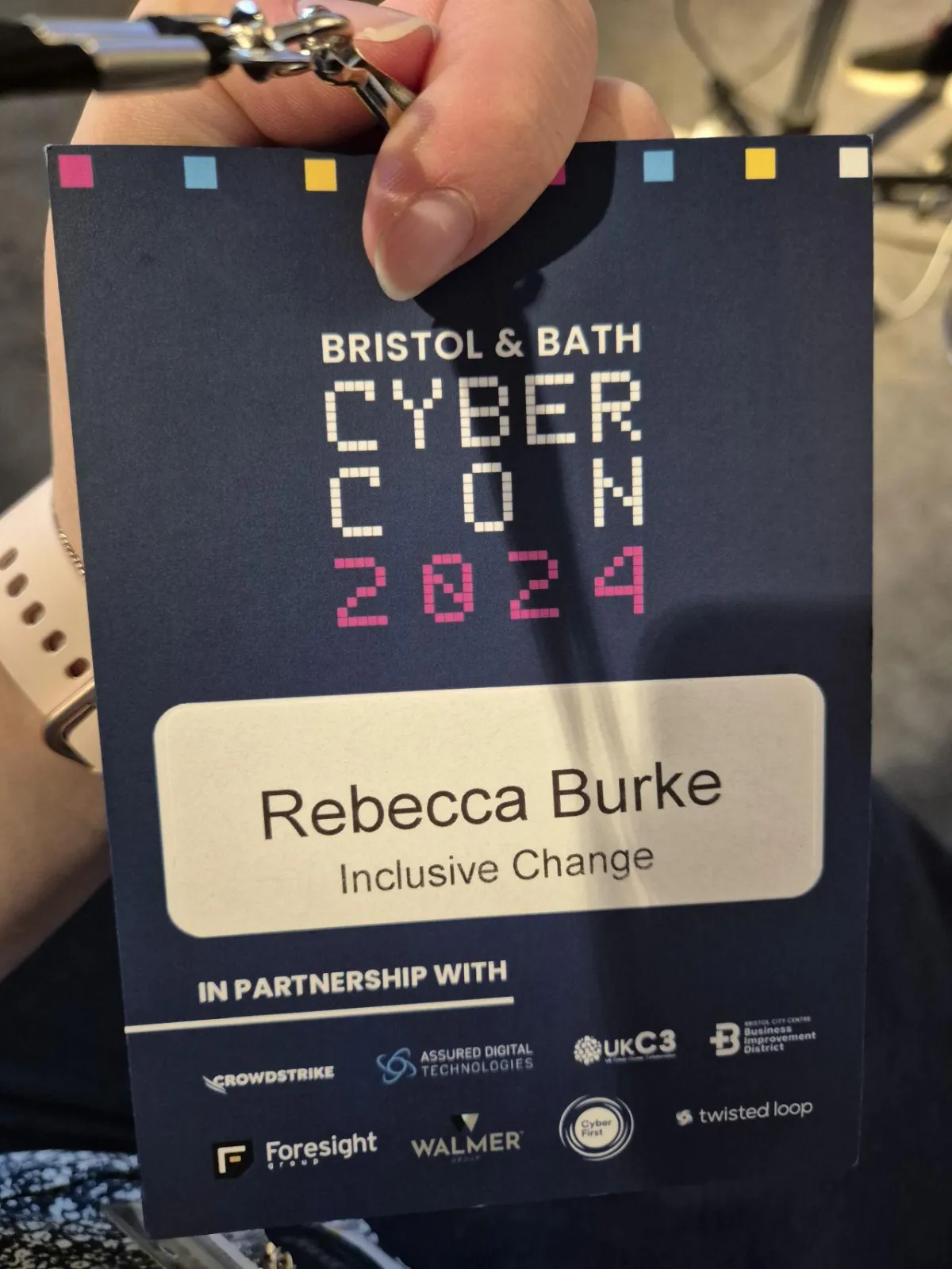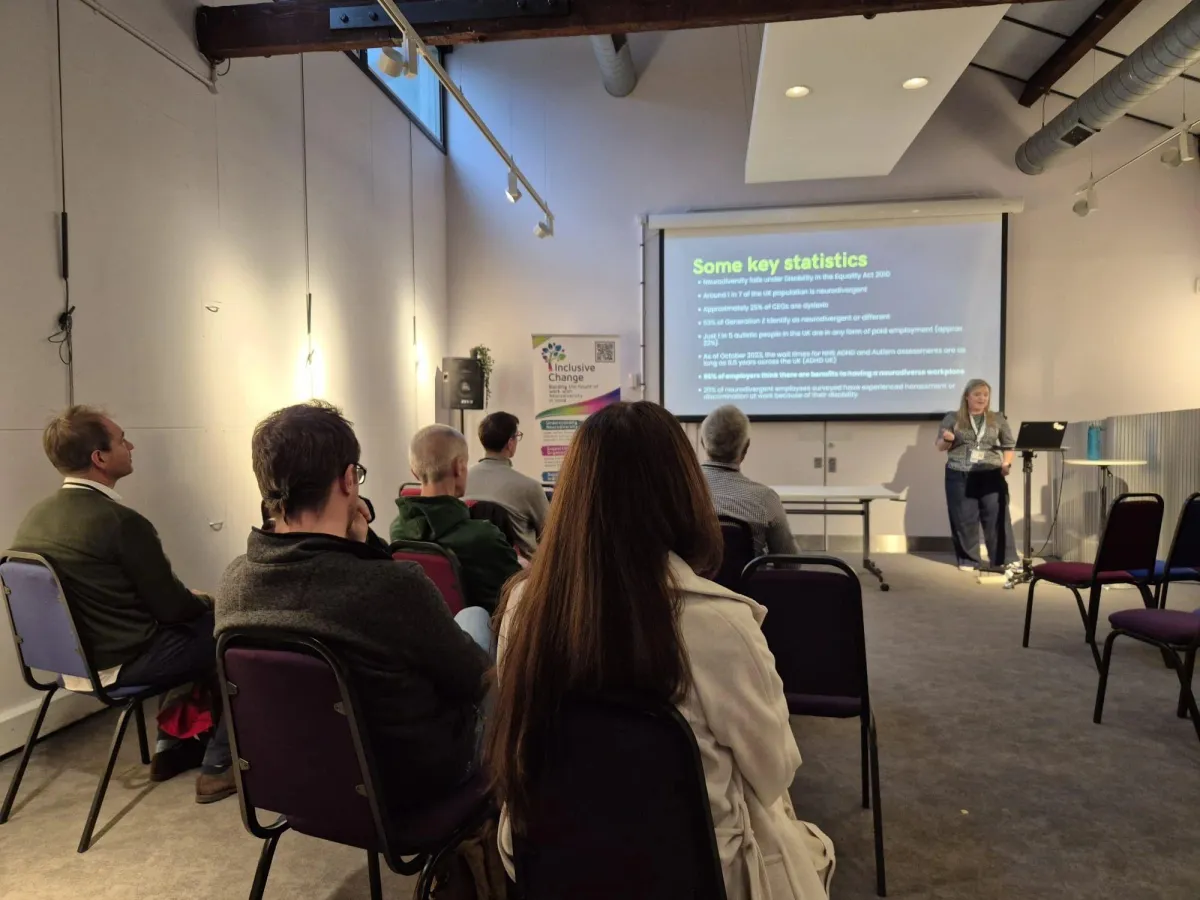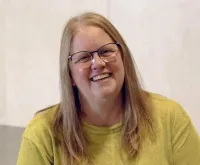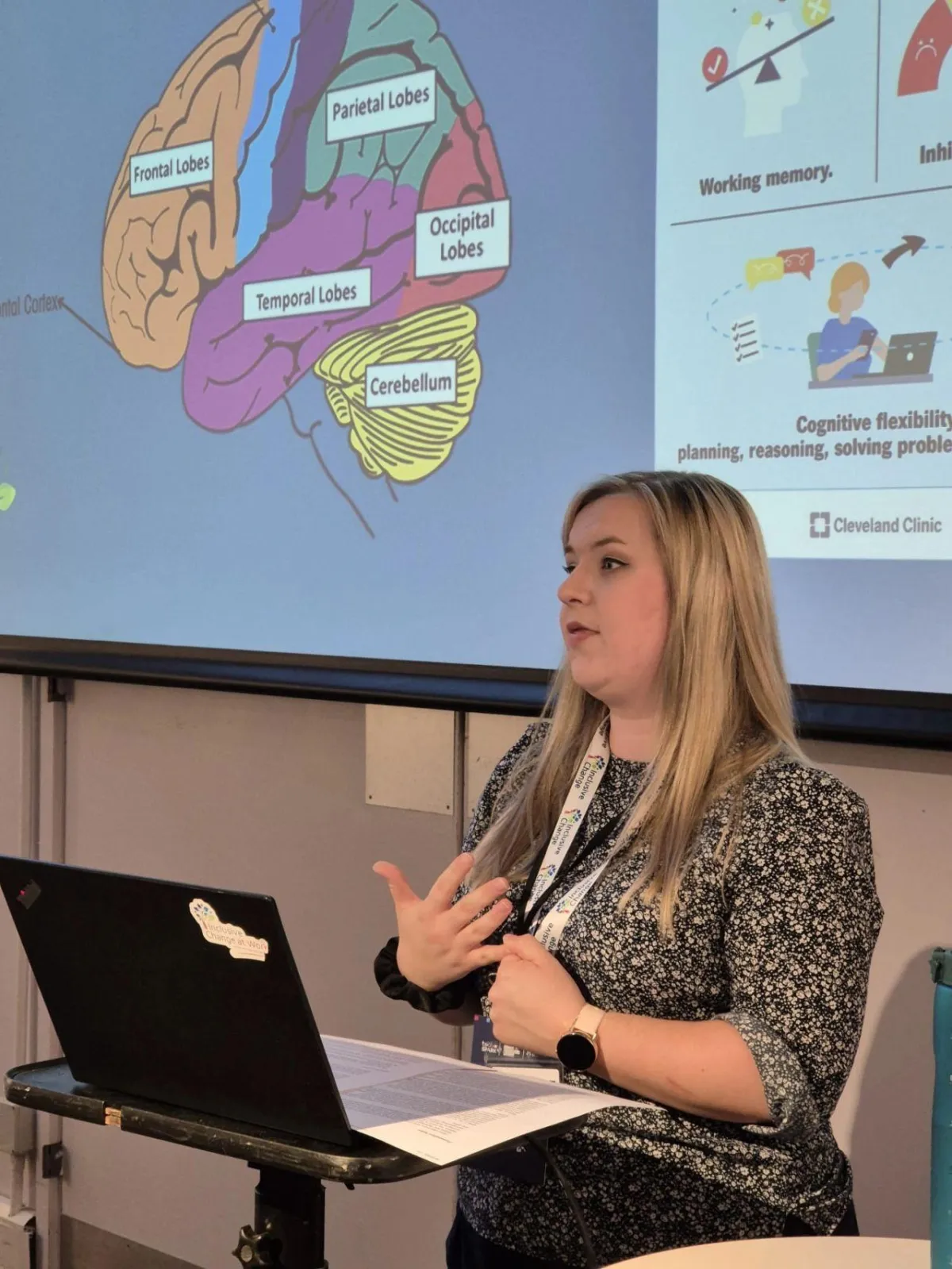
Becca Burke
Speaker
Empowering Neurodiversity in the workplace
Hi, I am Becca!
I'm Becca, a passionate advocate for neurodiversity and understanding ADHD in the workplace. Living with ADHD (combined presentation) myself, I bring a unique blend of professional experiences and personal insights to the conversation about creating inclusive, productive work environments. Equity in the workplace is especially important for us as neurodiverse folk; if given the adjustments and support we need, we can not only survive, but thrive at work.
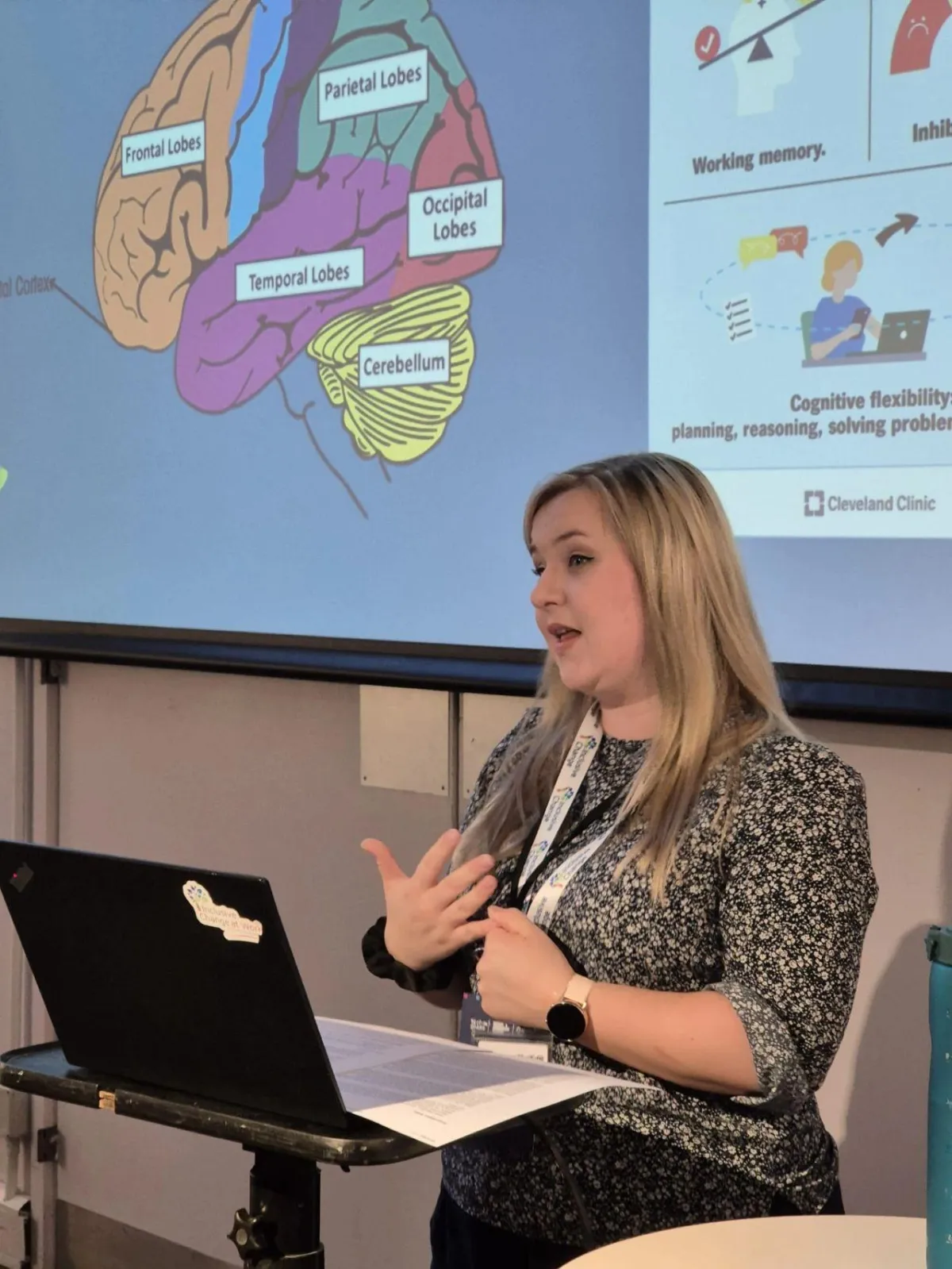
My professional journey
My career path has been varied, in true ADHD style! From my early days in customer relations to roles in sales and account management, I've always excelled in building relationships and understanding people's needs. My time at a FTSE 100 bank gave me a solid foundation for navigating large organisations and the politics of the office environment, and I then had to adapt quickly to the drastic changes of the Covid-19 Pandemic Lockdown. It was during this time, recognising the disruption to my routine, hyperfocusing on work outside of my core hours, and my inability to finish any tasks to completion, that I realised something wasn’t working for my brain.
Throughout my career, I’ve recognised that I was struggling, but never quite understood why. I saw so much of my own journey in the struggles I heard from other neurodiverse people, and I wanted to find a way that I could tangibly make a difference. After my own diagnosis in early 2024, I was inspired to become an ADHD Coach with Leanne Maskell's ADHD Works, and led to me being headhunted for Inclusive Change Ltd as Support Specialist.
My Areas of Expertise
- ADHD awareness and management strategies
- Education and training around ADHD for businesses
- Job coaching neurodivergent clients at work
- Rejection Sensitive Dysphoria awareness/training
- Business process improvement for neurodiverse workforce support
- Working with clients as a neurodiversity educated Virtual Assistant
- Neurodivergent talent recruitment and retention
- ADHD Works Level 1 Coach
Popular Discussion Topics
- Rejection Sensitive Dysphoria (RSD) & ADHD
- ADHD and the menopause
- ADHD screening in prisons
- ADHD and neurodiversity co-occuring traits
- ADHD celebrities
- Current research development
Living with ADHD
- Physiological difference in the brain
- ADHD facts and figures
- Common misconceptions
- Lived experience
- Interactive Q&A
ADHD in the Workplace
- Common challenges and strategies
- Strengths ADHDers bring to the workplace
- Challenges for us in the workplace
- Helpful strategies
- Reasonable Adjustments
- Equality Act 2010 protection
My Speaking Style
I pride myself on being engaging, insightful, and empathetic. My presentations blend personal anecdotes, research-based strategies, and interactive elements that leave audiences both informed and inspired. I like making complex topics accessible, and providing concrete, implementable solutions to common workplace challenges.
Why Choose Me?
At Inclusive Change, we understand your ‘Why,’ and meet you where you are on your journey as a business. Whether you're looking to educate your HR or leadership teams, or provide valuable insights to your entire organisation, I can help. I don’t believe that we as neurodivergent people need to change who we are to succeed; with the right support, education and awareness, we can be ourselves without compromise.
Work with me
Ready to transform your understanding of ADHD in the workplace?
Would you like me to run a workshop for you?
Get in touch using my calendar below.
Read my blog here: https://inclusivechange.co.uk/blog/b/adhd-and-me
Read more
The blog
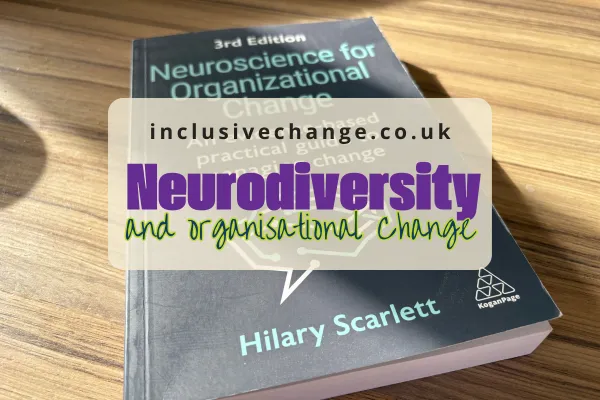
Why neuroinclusive change matters
Why Neuroinclusive Change Matters - Building the Case
Organisational change is rarely easy, but for neurodivergent individuals, it can be especially complex. While leaders and managers may focus on timelines, technology, and transformation goals, many overlook how the process of change itself can unintentionally exclude, overwhelm, or disadvantage some of the most talented people in the organisation.
This blog kicks off a four-part series exploring how to create change programmes that are neuroinclusive - practically, empathetically, and strategically. This is based on an interview published in a recently updated book from Hilary Scarlett: Neuroscience for Organizational Change. Details of how to purchase are at the end of this article.
In this first post, we’ll explore why inclusive change matters, how neurodivergent individuals experience change differently, and why bringing their voices into the process can transform not only the journey but the outcome.
Why “Business as Usual” Doesn’t Work
Neurodivergent employees, such as those with autism, ADHD, dyslexia, dyspraxia or sensory processing differences, are often highly skilled, perceptive, and resilient. Many have developed personalised ways of working that help them succeed, often in systems not designed for their needs.
But when change comes, new systems, new teams, new ways of working, these carefully constructed workarounds or coping strategies can be disrupted. That disruption can lead to confusion, stress, reduced performance, or even burnout, especially when managers and change leaders don’t understand what’s happening.
What’s crucial is this: many neurodivergent employees won’t disclose their diagnosis (if they have one at all), and they shouldn’t have to. That’s why change processes need to be inclusive by design—anticipating diverse needs, not waiting for individuals to flag them.
Reframing Disability Through Organisational Change
One of the most helpful shifts for leaders is to examine change through the lens of different disability models:
The medical model sees the individual as the problem—someone who needs fixing through therapy, medication, or accommodation.
The social model reframes this: it’s not the person who is the problem, but the environment that creates barriers.
Organisational change is the perfect time to ask: Are we designing a process that removes or reinforces barriers?
For example:
Are communications clear, or full of ambiguity?
Are new systems accessible to a range of processing styles?
Do your meeting rhythms and collaboration norms accommodate different cognitive needs?
If you don’t ask these questions, the answers will surface anyway—through performance concerns, employee distress, or resistance to change that’s mislabelled as attitude rather than access.
Why Lived Experience Drives Better Outcomes
Involving neurodivergent people in the planning and design of change programmes is not just inclusive - it’s smart. They often have a unique perspective on systems, risk, and complexity. They may raise concerns that others haven’t seen and propose solutions no one else would have thought of.
Put simply: they can help you make your change programme better.
As you build a vision for the future, invite neurodivergent voices into the room early. Explore how your culture, policies, and ways of working might need to evolve—not just the technical systems. And don’t assume silence means comfort. Creating safe ways for all employees to contribute feedback - anonymously or through coaching - can illuminate challenges and opportunities you might otherwise miss.
Recommended Reading:
Neuroscience for Organizational Change
If you’re looking for a strong evidence-based foundation for this work, I highly recommend Hilary Scarlett’s Neuroscience for Organizational Change. Her book explains how our brains respond to change and how leaders can design processes that are not only inclusive but also neurologically aligned with how people actually adapt.
Get your copy here: Neuroscience for Organizational Change – Kogan Page
Use code NEW20 for 20% off as a new customer on their website.
Take the Next Step
Neuroinclusive change isn’t just a concept—it’s a practice. At Inclusive Change, we help leaders and teams create workplaces where neurodivergent people can thrive, especially through periods of transformation.
Learn more about how we can support your organisation at inclusivechange.co.uk
Next up in the series: Clear Communication & Coaching: Essential Tools for Change.
Some of the Companies Inclusive Change Have Worked With So Far


Column Header
Lorem ipsum dolor sit amet consecetuer lorem ipsum
Organically grow the holistic world view of disruptive innovation
At the end of the day, going forward, a new normal that has evolved
Column Header
Lorem ipsum dolor sit amet consecetuer lorem ipsum
Organically grow the holistic world view of disruptive innovation
At the end of the day, going forward, a new normal that has evolved
Column Header
Lorem ipsum dolor sit amet consecetuer lorem ipsum
Organically grow the holistic world view of disruptive innovation
At the end of the day, going forward, a new normal that has evolved
Inclusive Change Ltd
The Brightwell, Bradbury House
Wheatfield Drive
Bradley Stoke, Bristol
BS329DB
Copyright 2025 - Inclusive Change Ltd
Companies House: 12412464
VAT NO: 352 1564 17
ICO Reg: ZB081779
UK Register of Learning Providers: 10090652

